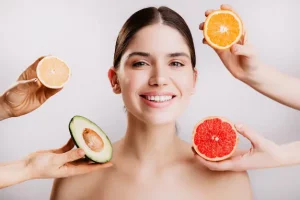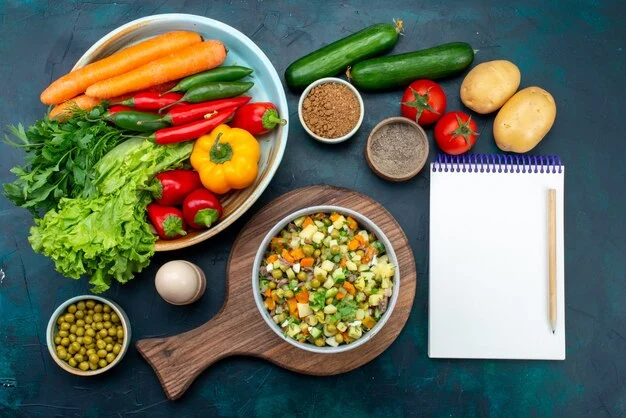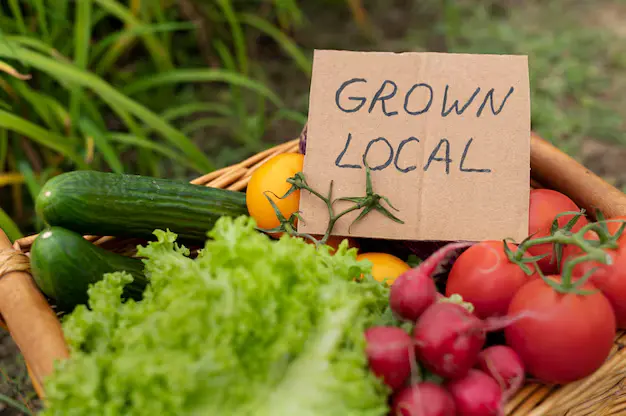
The Benefits of Organic Food for Your Skin and Health

What you eat can have a big impact on how you feel and how you look. There are many advantages of eating organic food. It can improve your skin and health. Unlike conventionally grown nourishment, which uses pesticides, hormones, and other chemicals, organic nourishment is grown without these added substances. It is tall in supplements and helps keep up the adjust of skin and, by and large, well-being. This article will point out some benefits of joining organic food with your dietary lifestyle that keep your skin healthy and your overall wellness.
Best Organic Food Out of All Benefits
Less Chemicals—Less Toxins in Your Body, a Healthier You
Why We Love It: Organic food is produced with no synthetic chemicals or pesticides, so it is a cleaner, safer option. This decreases the accumulation of toxins that can cause allergies, hormone dysfunction, or chronic illness in us.
Best For: Individuals struggling with health issues that believe in reducing their chemical intake and want to feel better over time.
Best Budget Organic Picks
Best Deals on Organic Apples, Carrots, and Bananas
Why We Like It: They are some of the cheapest organic options out there and are found virtually everywhere. They’re also excellent sources of fiber, vitamins, and antioxidants, and they won’t leave pesticide residue behind.
Best For: Those who want high-quality nutrition without a big price tag.
Nutrient-Dense Organic Food
Spinach, Berries, and Quinoa—Super Nutrition Note
Why We Love It: Several studies suggest that organic foods contain enhanced levels of antioxidants together with iron and magnesium minerals. Organic foods increase immunity functions while reducing inflammation, together with improving overall health.
Best For: Those seeking to support their health, digestion, and nutrient absorption.
Best for Eco-Conscious Shoppers
Organic farming—healthy for you, for your planet
Why It’s Different: Organic farming uses less water, reduces pollution, and increases biodiversity by natural methods of composting and crop rotation.
Best For: Environmentally minded shoppers who wish their food choices contributed to a healthier planet.
Best GMO-Free Option
100% Natural — No Genetic Engineering
Why It Matters: Organic foods are certified to contain no genetically modified organisms (GMOs). It means no genetic tinkering — only clean, natural food.
Best for: shoppers who are wary of the long-term health effects of GMOs or who want less environmental impact.
How to Identify Genuine Organic Food from the Imposers
If possible, choose certified organic labels.
As you’d search for ENERGY STAR® with appliances, look for the USDA Organic seal or similar certification logos in your country. These stamps certify that the food adheres to rigorous organic farming standards.
No Misleading Labels: If it says “natural,” “pesticide-free,” or “farm-fresh,” that does not mean it’s organic.
Best Covered Organic Foods to Eat Every Day
- Category
- Organic Picks
- Fruits
- Apples, berries, bananas, citrus
- Vegetables
- Spinach, cabbage, carrots, sweet peppers, tomatoes
- Whole Grains
- The list would go on with quinoa, oats, brown rice, and barley.
- Meats & Dairy
- Chicken, beef, pork, milk, cheese (antibiotic-free/hormone-free)
- Legumes & Nuts
- Beans, lentils, walnuts, almonds
The foods are rich in nutrients and contribute to supporting immunity, digestion, heart health, and energy levels.
Finding the RIGHT Organic Food for YOU
Health Goals:
- EVEN LOWER TOXINS: Go for the certified organic veg and fruit.
- More Nutrients: Load up on berries, leafy greens, and whole grains.
- Sustainability — Support the Environment: Choose organic meats and dairy made by humane, sustainable practices.
Label Awareness:
- Choose USDA Organic or other certified labels.
- Beware of generic terms lacking certification.
Frequently Asked Questions (FAQs)
-
What is organic food?
Food that has not been raised using synthetic pesticides, chemical fertilizers, or GMOs — just using natural farming practices.
-
Does organic food taste better than non-organic?
Yes. It generally has less toxic residue and may also have more nutrients.
-
There are NO chemicals in organic foods.
They contain a lot fewer chemicals. Natural pesticides may be used only, not synthetic.
-
How do I know if a food is really organic?
Look for certified organic labels such as USDA Organic—it means it meets official standards.
-
Which organic foods should you eat daily?
Organic apples, spinach, and carrots; quinoa and oats; as well as hormone-free meats and dairy.
-
Why is organic food expensive?
Since it requires more labor, reduced yields, and certification costs. But the health and environmental benefits are accumulated over time.
-
Is organic food more delicious?
Many believe so! Organic produce is picked at its freshness peak and grown in soil rich in nutrients, making it tastier than traditional produce.





